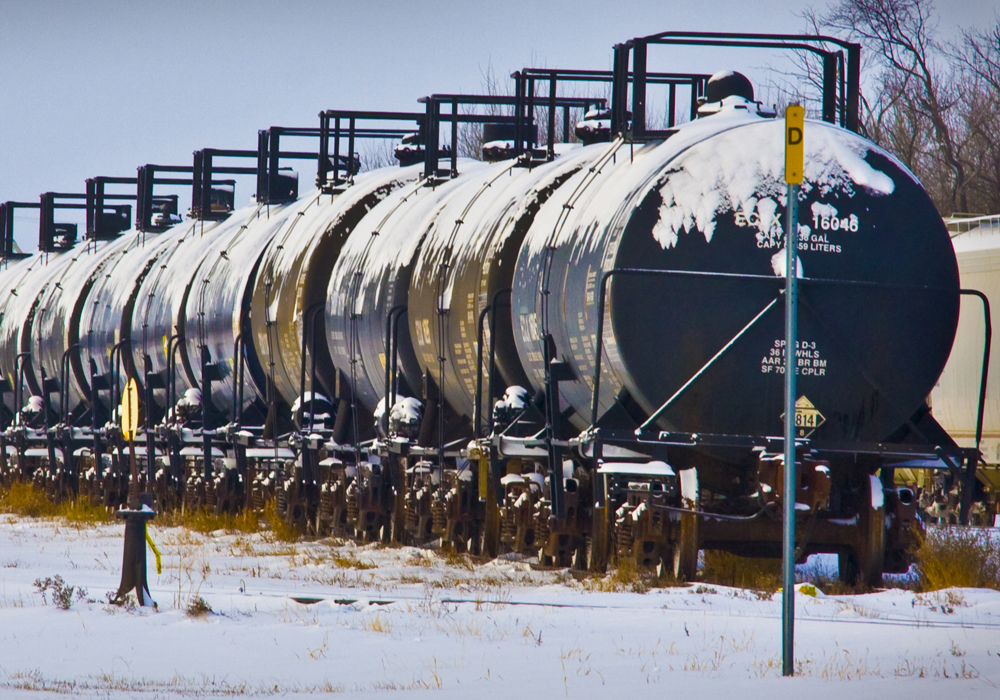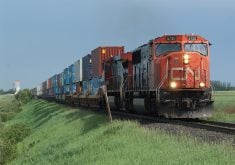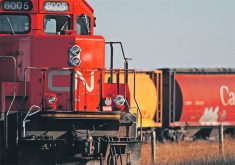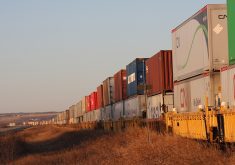Grain movement might be the big issue on producers’ minds as Alberta heads into an election this spring.
Worries about potential backlogs were heavily discussed during an MLA and candidate panel at FarmTech Jan. 29 with representatives from the political left and right offering their thoughts on the issue.
“Transportation is a large concern of ours,” Grain Growers of Canada chair Jeff Nielsen told the panel.
“In the last five years, we’ve seen major disruptions.”
Fears over delays stem from the province’s plan to move 120,000 barrels of oil a day by 2020, purchasing as many as 7,000 tanker cars and 80 locomotives.
Read Also

Farming Smarter receives financial boost from Alberta government for potato research
Farming Smarter near Lethbridge got a boost to its research equipment, thanks to the Alberta government’s increase in funding for research associations.
The province is buying the cars because there isn’t enough pipeline capacity to move oil. The Trans Mountain expansion, which the federal government recently bought for $4.5 billion, has been stalled by the courts.
However, experts are split on how the additions will affect grain movement.
Some say impacts could be marginal, while others believe they could be major, depending on the capacity of new rail infrastructure and where product is being moved.
However, the general consensus is that effects won’t be fully known until the rail cars come on line.
During the forum, Nielsen wondered if money for the cars and locomotives could be better spent, possibly on other infrastructure.
In response, NDP MLA Jessica Littlewood said the cars are needed because Alberta is in a crisis to get oil to market.
She said it’s a mid-term solution as the province continues to push for more pipeline capacity. Alberta has also introduced mandatory production cuts, she added, pushing Canadian prices to be more comparable with U.S. prices.
“It’s not easy, but that mid-term solution of adding rail doesn’t impact rail capacity for agriculture products,” said Littlewood, referencing a recent Quorum Corp. report that said it’s unlikely more oil cars will affect grain movement.
However, United Conservative Party MLA Devin Dreeshen felt differently.
He said he believes funds to buy the rail cars should go to other infrastructure.
“They (the NDP government) say it’s not going to interfere with grain; I do hope that is true,” he said, slamming the provincial and federal governments for not appealing the Trans Mountain court ruling.
“We’ve seen a huge uptick in oil being shipped by rail, and that comes at a direct hit to grain. There is finite amount of tracks, locomotives and engineers.”
Alberta Party candidate Kevin Smook said he believes there is already limited capacity on railways.
“We do believe oil by rail has many disadvantages, but it looks like with the lack of pipelines, we’re going to have to share that space with grain movement. I don’t see any other way,” he said.
Contact jeremy.simes@producer.com


















